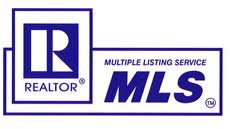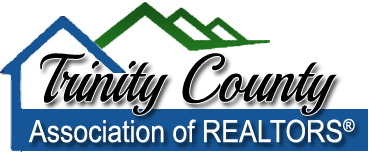 Trinity County has a population of just under 14,000. Weaverville, CA (the county seat) is a historic California Gold Rush town with a current population of just under 4,000 people. Many residents choose Trinity County as a place to live and retire because of the climate, wonderful mountain views, and clean air - not to mention the wonderful people. There are beautiful mountain forests that lie along the Trinity River within the Salmon/Klamath Mountains. We are known for our mountain biking and other recreational activities, our rich history of logging and timber, and our many historic buildings and unique architecture.
Trinity County has a population of just under 14,000. Weaverville, CA (the county seat) is a historic California Gold Rush town with a current population of just under 4,000 people. Many residents choose Trinity County as a place to live and retire because of the climate, wonderful mountain views, and clean air - not to mention the wonderful people. There are beautiful mountain forests that lie along the Trinity River within the Salmon/Klamath Mountains. We are known for our mountain biking and other recreational activities, our rich history of logging and timber, and our many historic buildings and unique architecture.If you have any questions about our area, the real estate industry, or our REALTOR Association, please contact us today!
Inman Unpacks the NAR Settlement Proposal to the
Sitzer/Burnett Buyer-Broker Commission Lawsuit
Friday morning, NAR announced a proposed settlement agreement that would end litigation of claims brought on behalf of home sellers related to broker commissions. The settlement is subject to court approval.
The agreement would resolve claims against NAR, over one million NAR members, all state/territorial and local REALTOR® associations, all association-owned MLSs, and all brokerages with an NAR member as principal that had a residential transaction volume in 2022 of $2 billion or below.
To provide additional clarity on the issue, please join C.A.R. President Melanie Barker, C.A.R. General Counsel Jenny Li and members of C.A.R.’s legal team to get your questions answered at a live virtual townhall session, Monday, March 18, 10:30 a.m. – 11:30 a.m., OR Thursday, March 21, 10:30 a.m. – 11:30 a.m. as they cover what you need to know about the settlement, its potential effect on the real estate industry and how it may impact your business and consumers.
Register here to attend Monday, March 18
Window to the Law
A monthly video series that provides valuable risk management tips and information to help real estate professionals navigate legal issues facing the real estate industry.Realtors can log into their NAR account and view All available videos HERE >
Prop 19 Transfer of Tax Base for Homeowners
Important Tax Savings for Older Homeowners
Prop 19 allows all homeowners aged 55 and older, to move closer to family, medical facilities or anywhere in California without a tax penalty. Victims of wildfire and severely disabled homeowners may also be eligible. You have the opportunity to transfer the tax base on your current home to your new home. See links below for detailed information.
ADDITIONAL RESOURCES
IMPORTANT LINKS for REALTORS®
C.A.R. DISASTER RELIEF FUND (DRF)
To Apply for a Grant: The California Association of REALTORS® Disaster Relief Fund has been helping the REALTOR® family recover from natural disasters for more than 17 years. The C.A.R. Disaster Relief Fund was established in the wake of the devastating 2003 California wildfires, thanks to generous contributions from the California Association of REALTORS®, state and local REALTOR® associations and other contributors. Grants provided by the fund are used to help members of the California REALTOR® family — including REALTORS®, employees of REALTORS®, and employees of local Associations of REALTORS® — who incurred substantial losses due to the wildfires. If you have experienced property damage and/or loss due to the wildfires, or suffered from a recent natural disaster and need assistance, you may be eligible for a grant from the C.A.R. Disaster Relief Fund. Please click here to complete and submit a DRF Grant Application.
To Donate to the Disaster Relief Fund: Please help us continue our relief efforts by making a tax-deductible contribution to the CALIFORNIA ASSOCIATION OF REALTORS® Disaster Relief Fund. To make a tax-deductible donation by check, please make payable to the California Community Foundation and write "C.A.R. Disaster Relief Fund" on the "memo" line. Send checks to the California Community Foundation, 221 S. Figueroa St., Suite 400, Los Angeles, CA 90012. To make an online donation, please click here. For questions, please contact disasterrelief@car.org.
WILDFIRE PREPAREDNESS RESOURCES
- Get the App: CAL FIRE is encouraging Californians to access the “Ready for Wildfire” - a web-based app that includes local alerts, checklists for preparedness, evacuation plans, and other kits. To download the free Ready for Wildfire web-based app, visit https://plan.readyforwildfire.org/.
- Sign-up for Text-Message Alerts: Simply enter your zip code and phone number and you’ll receive text message updates of any active wildfires near you - https://incidents.readyforwildfire.org.
- Make an Evacuation Plan: Create a Wildfire Action Plan for your family and office. Being ready to go also means knowing when to evacuate and what to do if you become trapped. This CAL FIRE evacuation guide provides everything from checklists, evacuation steps, power outage info, animal evacuation and more - www.readyforwildfire.org/prepare-for-wildfire/go-evacuation-guide/.
- Get Prepared: Firefighting alone cannot protect us. Californians have an important role in preventing wildfires by ensuring adequate defensible space around homes and buildings, making homes more fire resistant and having an emergency preparedness/escape plan. This is especially important since approximately 25% of the state’s population, or 11-million Californians, live in a high-risk fire zone. Thousands of communities depend on smart planning and prevention tools such as protective fuel breaks, defensible space around homes, and home hardening for their safety and survival. These tools work together to build more fire-resilient communities. Californians can learn more about all aspects of wildfire safety and preparedness at www.ReadyForWildfire.org.
- Fire Insurance One-Sheets: With nearly 500,000 California homes worth a combined $268 billion under serious risk from wildfires, and the issue growing more acute with each passing year, insurance companies are ramping up prices or outright refusing to renew policies in fire-prone areas. Use these materials to keep your customers informed about how to protect their homes, keep their insurance coverage and find new coverage when necessary - www.car.org/marketing/clients/fireinsurance.
- CA Disaster Resources: a list of government agencies, organizations and reference guides for preparing and responding to natural disasters in California -www.car.org/en/difference/realtorscare/cadisasterresources.
NAR Code of Ethics Training
DID YOU KNOW??? An Ethics Course is required by all members.
As you probably know, the current cycle for Realtor members to take the Code of Ethics is 2022-2024. In 2019, NAR passed a motion that all Realtors® must take the Realtor® code of ethics course every three years and the current cycle deadline is from January 1, 2022 to December 31, 2024.
If you have not taken a Code of Ethics course in this cycle, you can take the "FREE" course at the link below.
Please let Donna Medina know if you have questions at trinityaor@gmail.com
Check your COE Training Status: https://www.nar.realtor/my-account?tab=term-My-Education
For Existing Members: https://learning.realtor/diweb/home
For New Members: https://www.nar.realtor/coeeduc.nsf/findnrdsrecord?openform
TCAOR
Mission Statement
The Trinity County Association of REALTORS® mission is: to serve our members and the public, promote the preservation of real property rights, and promote real estate in Trinity County - while upholding the obligations established by the National Assoiation of REALTORS® Code of Ethics.Join Our Association



